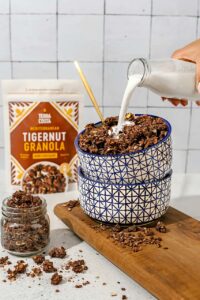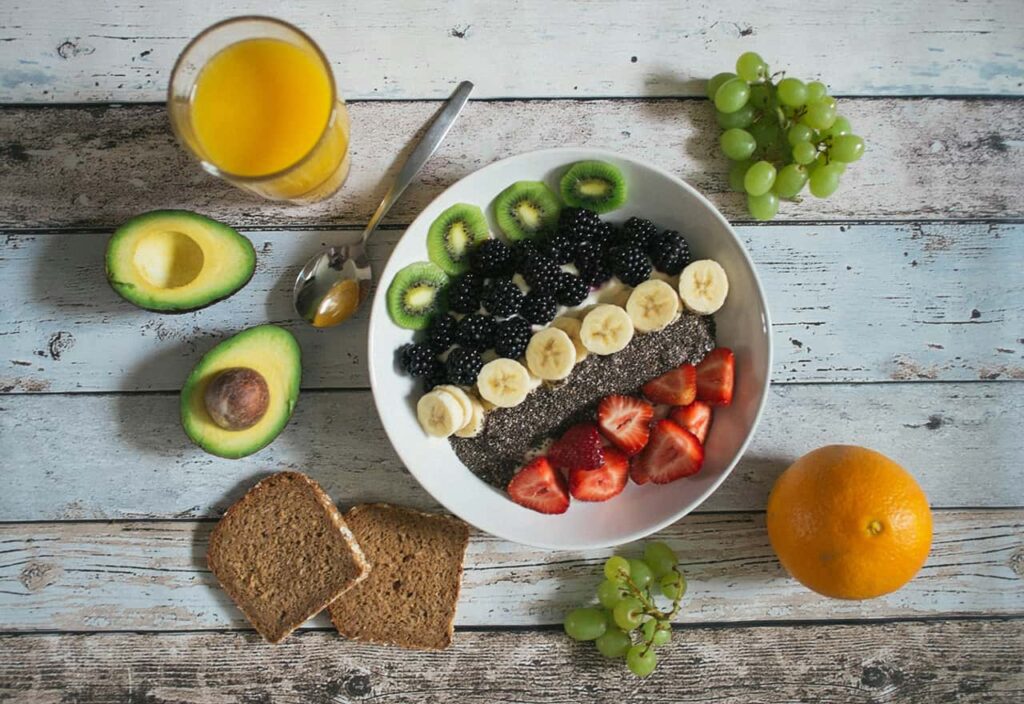In the world of sports and athletics, achieving peak performance requires more than just physical training – it also demands careful attention to nutrition. Proper fueling can make all the difference between reaching your goals and falling short of your potential. Whether you’re a competitive athlete or a fitness enthusiast, optimizing your diet to support your training regimen is essential for maximizing performance, promoting recovery, and sustaining long-term health. In this comprehensive guide, we’ll explore the top nutrition tips for athletes to help you fuel your body, power your workouts, and achieve your athletic aspirations.
Sports nutrition is a specialized field that focuses on optimizing dietary intake to enhance athletic performance and support exercise training. It encompasses a range of factors, including macronutrient balance, micronutrient adequacy, hydration strategies, and timing of meals and snacks. By tailoring your nutrition plan to meet the specific demands of your sport, training schedule, and individual needs, you can maximize energy levels, improve endurance, and reduce the risk of injury and fatigue.



The Role of Macronutrients
Carbohydrates are the body’s primary source of energy, particularly during high-intensity exercise. Complex carbohydrates, such as whole grains, fruits, vegetables, and legumes, provide sustained energy release and help maintain blood sugar levels. Simple carbohydrates, such as sugars and refined grains, can be useful for immediate energy needs but should be consumed in moderation to avoid energy crashes and promote long-term health.
Protein is essential for muscle repair, growth, and recovery, making it a crucial component of an athlete’s diet. Aim to include lean sources of protein in each meal and snack, such as poultry, fish, eggs, dairy products, legumes, and tofu. Timing is key when it comes to protein intake – consuming protein-rich foods or supplements within 30-60 minutes post-exercise can optimize muscle protein synthesis and promote recovery.
Healthy fats play a vital role in supporting overall health and optimizing athletic performance. Focus on incorporating unsaturated fats from sources like nuts, seeds, avocados, and fatty fish into your diet to promote heart health and reduce inflammation. Limit intake of saturated and trans fats found in fried foods, processed snacks, and fatty meats, as they can impair cardiovascular function and hinder performance.
Hydration is critical for maintaining fluid balance, regulating body temperature, and supporting cardiovascular function during exercise. Aim to drink water regularly throughout the day and during workouts to prevent dehydration and optimize performance. Monitor urine color and body weight to gauge hydration status – pale yellow urine and minimal weight loss during exercise are indicators of adequate hydration.
Electrolytes, such as sodium, potassium, and magnesium, play a key role in fluid balance, muscle contraction, and nerve function. During prolonged or intense exercise, consider replacing electrolytes lost through sweat with sports drinks, electrolyte tablets, or electrolyte-rich foods like bananas and yogurt.

Pre-workout meals should focus on providing a balance of carbohydrates and protein to fuel exercise and optimize performance. Aim to consume a carbohydrate-rich snack or meal 1-2 hours before exercise to top up glycogen stores and sustain energy levels during workouts.
Post-workout nutrition is crucial for replenishing glycogen stores, repairing muscle tissue, and promoting recovery. Consume a protein-rich snack or meal within 30-60 minutes post-exercise to maximize muscle protein synthesis and enhance recovery.
Sleep is essential for physical and mental recovery, hormone regulation, and immune function. Aim for 7-9 hours of quality sleep per night to optimize recovery and performance.
Incorporate rest days into your training schedule to allow for adequate recovery and prevent overtraining. Use rest days as an opportunity to engage in active recovery activities like stretching, yoga, or low-intensity exercise.
Proper nutrition is a cornerstone of athletic performance, providing the fuel your body needs to power through workouts, recover from training, and achieve your fitness goals. By prioritizing macronutrient balance, hydration strategies, meal timing, and recovery practices, you can optimize your diet to support your athletic endeavors and unlock your full potential. Remember that nutrition is a dynamic process that requires ongoing adjustment and experimentation to find what works best for you. So, fuel your body wisely, train smart, and enjoy the journey toward peak performance and optimal health.
